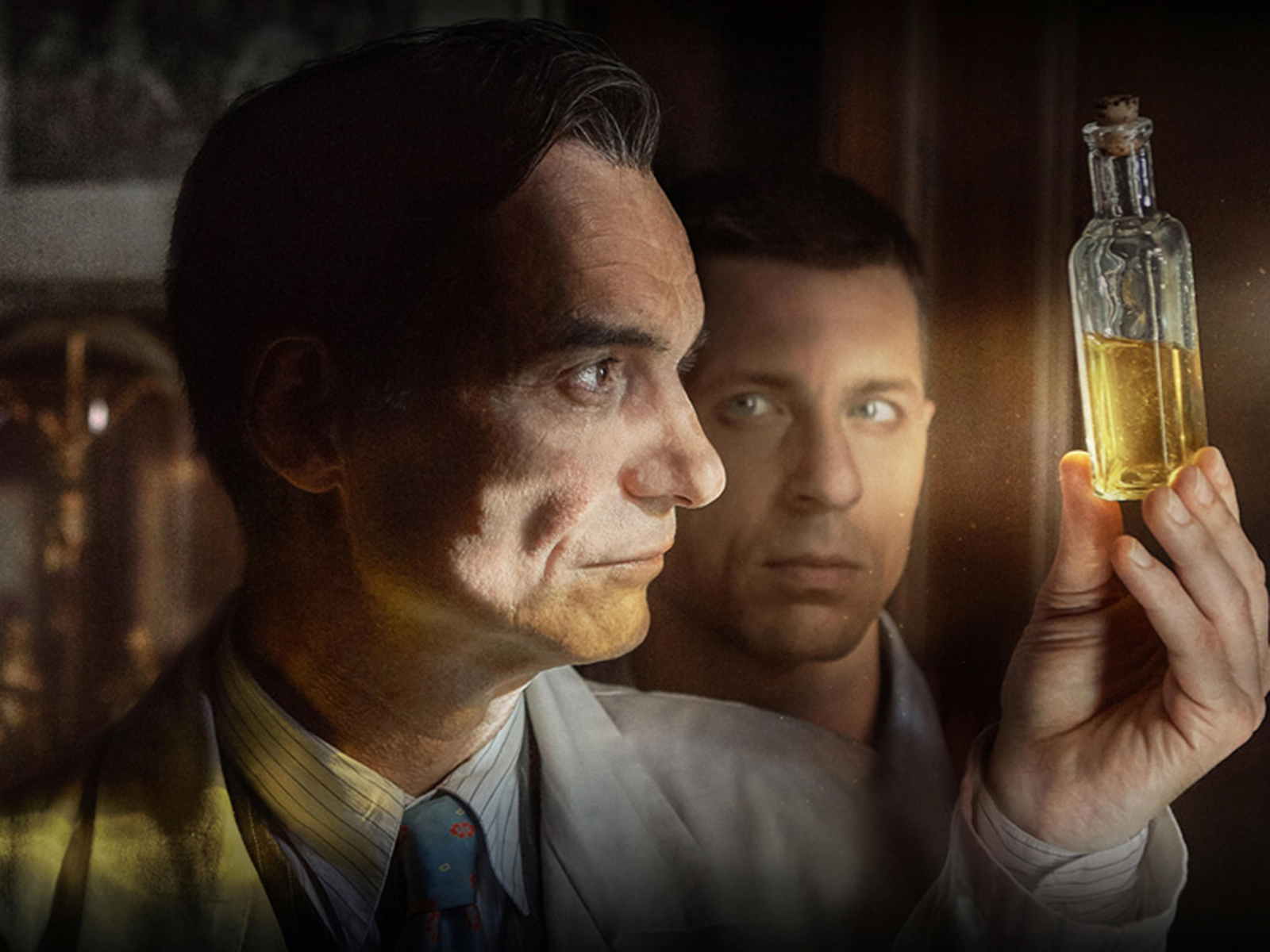
- Golden Globe Awards
Charlatan (Czech Republic)
Charlatan, directed by Polish director Agnieska Holland from a script by Marek Epstein, is about the life of Czech healer/herbalist Jan Mikolášek (1889-1973). The film shows the holistic healer at the height of his power when he counted among his patients the Communist President of Czechoslovakia Antonin Zapotocky and Nazi party official Martin Bormann. It extends to his loss of political clout after the death of his protector in 1957, until his arrest and trial after a trumped-up charge by the Secret police. Flashing back to an early passion for botany from this gardener’s son, under the guidance of his teacher, we see him learn from the village healer Mrs. Mulbacherova, who taught him the medicinal properties of plants and the technique of diagnosing diseases through the visual examination of urine samples against the light.
There is a fascinating relationship between the master and his live-in married assistant, František Panko, that evolves into a love affair, which had to be kept secret since homosexuality was a criminal offense during the German occupation and under the post-war communist regime.
The director spent her formative years studying film in Czechoslovakia, in the late ‘60s, early ‘70s, during the Prague Spring of 1968 and the subsequent Soviet invasion. As a result, Holland feels very close to the history, the culture, and the people of that country. She was inspired by the mystery surrounding this nature doctor who had incredible intuition and talent and told a story that is 80% factual and which reflects the reality, but for the psychological aspects, she let her imagination and her intuition run freely.
Holland does not portray her hero as a charlatan or a crook, but as a healer with a special gift who followed his passion under two of the most terrible totalitarian regimes in history. He cured millions of people, rich and poor alike, proved to a panel of scientists and doctors that his diagnoses were correct, and saved lives on several occasions when traditional medicine didn’t work.
Holland says that Mikolášek was extremely popular in his times, from the 1920s to the 1950s, and after ending up in prison, he was forgotten. “There are very few people still alive who remember him, but for the specialists in nature healing, especially for the experts on medicinal plants in the Czech Republic and in Slovakia, he’s a hero, a real source of traditional knowledge. They’re all his heirs, so his heritage is present, but his name is not widely known,” she said.

